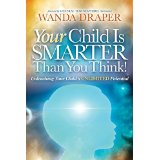Having a disability and being able to identify this. My son has taught me a lot about this. It is a very touchy subject. There is an advantage to saying I have blank. When a person goes to Secondary Education and asking for the help that is needed means naming your disability.
Consider these things about having to say I have blank. How many people like being singled out? Do you want to be known for being different or having a disability? Did you want to belong to specific groups? How many realize the peer pressure teens with disabilitiies face? Are called stupid or dumb for going to Lab Class for help? Going through all these issues at or during adolescent? Recall Freak Shows at the Fair and Circues?
Many teens and people in general with a disability see themselves as being flawed. A number of those in this population feel like naming their disability means something is wrong with them. A few might consider themselves less than whole.
This is my son Tanner Mack Adcock. Every time I have tried to teach him about his disability and to name it; he gets upset. He doesn't want to be known as a person with a disability. He is adamant he doesn't have a disability. Being in an inclusive Oklahoma History, one incentive for him to do good without any accommadations is to be able to stay in the classroom and take tests or whatever. If a child or teen goes to lab for help he might be labled as Retarded.
Another issue I have with what is considered correct Disability Advocacy deals with having teens lead their IEP meetings. This can be an awful amount of pressure for a teen. What teenager really knows what they want to do? Would we consider letting those labeled "normal" lead a class? Be in charge of more? Actually when I taught high school Biology I had teens present a paper, be video taped and have the so called authority of teaching the class. Their material was on my test. I gave them what I got. Which was asking to go to the bathroom and such.
Please understand, I believe that the interests of the teen are paramount. I only feel that direction of the meeting needs to be left in the hands of adults and direct the teens in having a meeting that covers all the things that should be done for him. Trust me how many teens declare a college major and end up with that being their final degree path? More should be expected from these teens.
How many teens with disabilities go on to be successful? How many owe that to a parent that has pushed the teen to contiue exploriong a path? Looking at jobs and pushing the teen to continue on in career or other?
Had I to do it over, I would been less about my son saying he has autism and more about him understanding when to ask for help. Then I would have explained more about how some people have specific needs and identified the people like President George Washington had huge spelling problems but overcame them. I would explain that people that have challenges need assistance and by understanding that this label may mean you can overcome this with a specific thing.
Does everybody know that a Blind person needs a cane or that a cane greatly increases his/her ability to get around?  Do we keep telling a person that is Blind to identifiy his disability or spend more time teaching him to use a cane to get around? How much time do we spend on teaching a person that needs a wheelchair that he has a mobility disability?
Do we keep telling a person that is Blind to identifiy his disability or spend more time teaching him to use a cane to get around? How much time do we spend on teaching a person that needs a wheelchair that he has a mobility disability?  Or, do we concentrate on teaching him/her to use the wheelchair to get aroud?
Or, do we concentrate on teaching him/her to use the wheelchair to get aroud?
 Do we keep telling a person that is Blind to identifiy his disability or spend more time teaching him to use a cane to get around? How much time do we spend on teaching a person that needs a wheelchair that he has a mobility disability?
Do we keep telling a person that is Blind to identifiy his disability or spend more time teaching him to use a cane to get around? How much time do we spend on teaching a person that needs a wheelchair that he has a mobility disability?  Or, do we concentrate on teaching him/her to use the wheelchair to get aroud?
Or, do we concentrate on teaching him/her to use the wheelchair to get aroud?
If I could go back and do it over; I would center my time and energy on teaching my son to grasp his needs to master challenges in life and be able to communicate that to others. Conveying to my son the importance of being able to ask for and communicate how support is a necessity for meeting the demands of this world. Or, somehow be more positivie in getting him to name his disabilities to be succesful in this world be where I placed my resolve with him.
I believe that being politically correct and following the trends in Disability Advocacy is less important than doing what is needed. I failed to listen to my son in his insistent of prefering to be identified as normal or not disabled. What I hope to convey in this post is for you to understand you the authority on your child. Try to listen to them and find a way to do what is needed without being afraid you are doing the right or correct way.
Become confident in yourself with regard to your child. There are no better specialists on a child than their parent or Guardian. Please learn from my mistakes. Instead of helping my son name his disability, I conveyed to him that he is different or that I think he there is something wrong with him. I am sure you know this was not my intent. Raising any child is scary. Trials and life associated with raising and planning for a child with extrodinary abilities is daunting.
If you have advice to me, disagree with my slant on this or other; commenting is crucial to boost parents or those working with this population to teach them how to do this.



